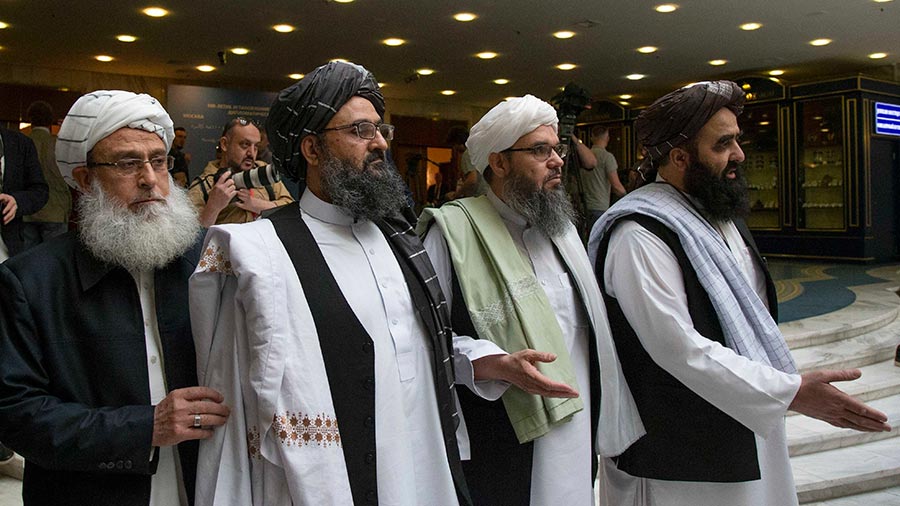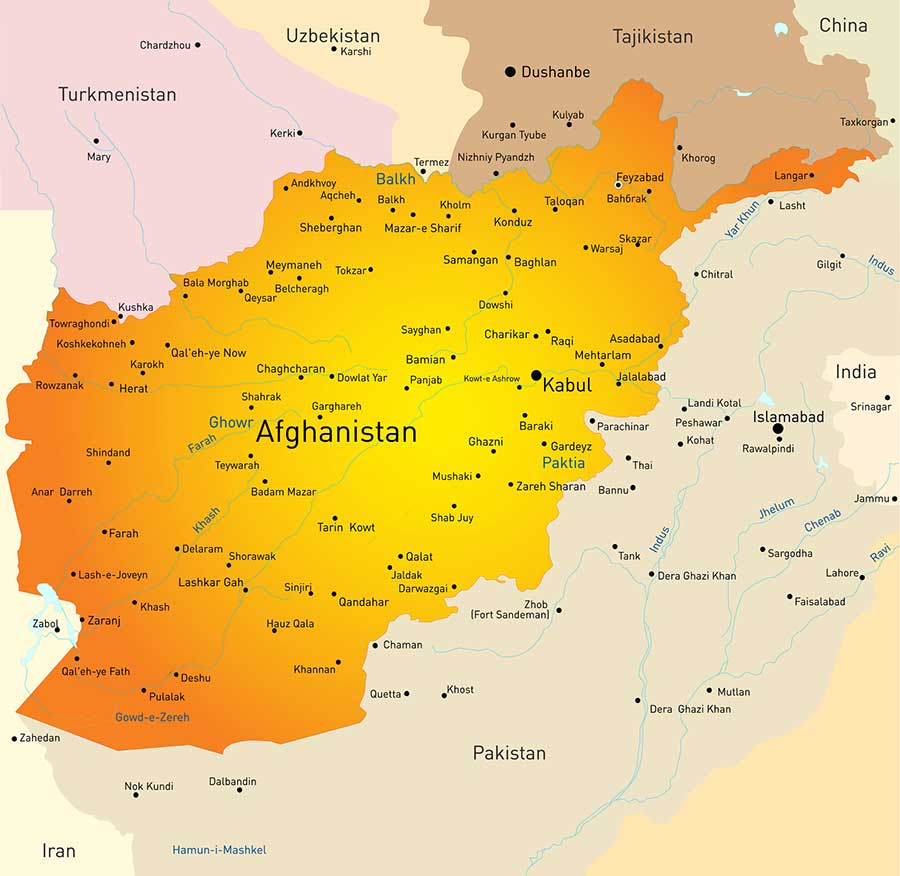The Taliban Says It Will Not Attack Central Asian Nations

By Chris Devonshire-Ellis
In talks with Russian Foreign Ministry officials in Moscow last week, the Taliban has said it would not attack countries in Central Asia despite its rapid advance through Afghanistan.
The country shares borders with Iran, Turkmenistan, Uzbekistan, Pakistan, and China and has already taken control of border checkpoints with Iran, Tajikistan, and Turkmenistan. A spokesman for the Taliban said they would allow cross-border commerce to continue as normal through multiple outposts they had seized, and which provide a lucrative flow of revenue.
More reports came in throughout the week of the Taliban capturing towns and cities in northern Afghanistan, a region it has previously not controlled. The trigger for the rapid Taliban advances was the withdrawal of the US-led forces and the collapse of Afghan government control. “We received assurances from the Taliban that they would not violate the borders of Central Asian countries.” Russia’s foreign ministry said. However, Turkmenistan, Tajikistan and Uzbekistan have mobilized their military units along their borders, while regional Russian joint military bases are also on alert.
The Taliban are currently making rapid advances towards Kabul, the Afghanistan capital, and foreign Embassy staff are being evacuated and premises shuttered. The Taliban have denied that Embassy staff or other civilians would be harmed, however this has not always been the case following similar statements.
Both Russia and China have made strenuous efforts to deal with the likelihood of a Taliban government running Afghanistan. Senior Russian military and international officials estimate the group now controls nearly half of the 400 districts in Afghanistan and is fighting in many others. It does not hold any of the major urban areas at this current time.
Wang Yi, the Chinese Foreign Minister has held a series of talks with regional counterparts and Russia, as has Sergey Lavrov, the Russian FM. Beijing has already shown it can lock down ‘vulnerable’ Muslims in Xinjiang and has had significant security in place there for years, including one imagines undercover agents. The military and security apparatus required is already in place.
There have been media suppositions that the United States wishes to draw China into an expensive Afghanistan conflict and divert China’s military resources away from frictions with India in Ladakh, in addition to Taiwan and the South China Sea. However, my view is that there is less need for any ‘redirection’ of resources away from Ladakh, Taiwan and the South China Sea, of which anyway the latter two are naval and not army military resources.
Regionally, China’s impacted neighbors and especially Pakistan are friendly, as are other Afghan border nations such as Turkmenistan, Tajikistan, Iran, and Uzbekistan. These nations also have good relations with Moscow.

Funding for the Taliban and similar factions (ISIL) comes mainly from Iran, Saudi Arabia, and Qatar, all onside with China and part of the BRI. I feel that the view will be expressed that to continue infrastructure and energy client relationships that funding must be scaled down. Doing so also then places the Taliban itself in the position of needing to be a client of Beijing: they require finance. Taliban leaders have already said that they would welcome infrastructure investment, provided it is beneficial for Afghanistan.
The TAPI (Turkmenistan-Afghanistan-Pakistan-India) gas pipeline already generates income for the Taliban, others are planned north-south.
Consequently, a more likely outcome is that Beijing will do a deal with the Taliban and tell them to keep their side of the border and that what they do in Afghanistan is their own affair, provided it does not upset Beijing or its other regional partners. The Chinese will be more seductive in their approach, less gung-ho and try and change the Taliban mindset (and its component warlords) that peace via trade is better than armed conflict. The Taliban have not expressed a particular desire to create a caliphate or claim influence over Muslims worldwide, being is a difference in this regard between the Taliban, Al-Qaeda and ISIL. China will therefore manage the situation which over time, as tempers cool, some sort of normality returns, and minds can be led towards trade. That is more likely to result in Afghanistan security – and the continuation and possible longer-term mellowing of Taliban beliefs than out and out war.
Afghanistan has a regional consumer export market reach of some 400 million Muslims on its borders. China will be wanting to put in infrastructure to enhance Afghani trade and use that to encourage commerce, keep the peace, and develop prosperity. All the regional players have vested interests in this, and I suspect that ultimately, it is this scenario that will prevail.
Related Reading
- The US Military Is Set to Withdraw from Afghanistan On September 11. What Happens Next?
- The Afghanistan Belt And Road: China’s Opportunity Or A US Exited Death Trap?
About Us
Silk Road Briefing is written by Dezan Shira & Associates. The firm has 28 offices throughout Asia, and assists foreign investors into the region. For strategic advisory and business intelligence issues please contact the firm at silkroad@dezshira.com or visit www.dezshira.com





